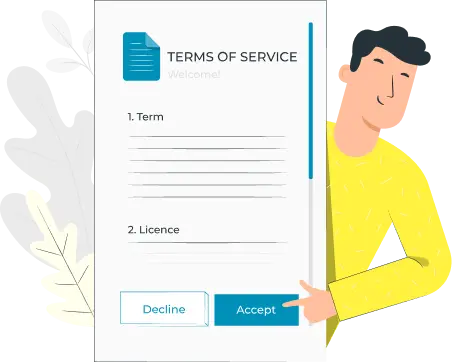Inclusion, in a business context, refers to the practices and policies that ensure all individuals—regardless of their race, gender, age, religion, disability, sexual orientation, or other personal characteristics—feel welcomed and valued. It's about making sure that everyone has an equal opportunity to participate and succeed in the workplace. Employees from all walks of life should feel comfortable sharing their ideas, opinions, and experiences without fear of discrimination or marginalization. Inclusion fosters a sense of belonging, encouraging employees to engage fully in their roles and contribute to the organization's success.
An inclusive workplace brings together people with different perspectives and experiences, which leads to more creative problem-solving and innovation. When employees feel valued and respected, they are more likely to share unique ideas and approaches. A McKinsey report found that companies with more diverse teams are 33% more likely to outperform their peers in terms of profitability. However, diversity alone isn't enough—these teams need to feel included in order to truly unlock their potential.
Employees who feel included are more engaged in their work. According to a Deloitte study, employees in inclusive environments are 42% less likely to leave their jobs. This translates to reduced turnover costs and the retention of top talent. Inclusion helps create a positive workplace culture where people feel connected to their colleagues and the organization, which boosts overall morale and job satisfaction.
Inclusion contributes to a strong employer brand. Organizations that are known for their inclusive practices attract a broader pool of candidates, particularly as job seekers become more aware of the importance of workplace culture. Additionally, inclusive companies are seen as socially responsible, which can enhance their reputation among clients, customers, and the community at large.
Inclusion starts at the top. Leaders play a critical role in setting the tone for the organization's culture. To build an inclusive workplace, leaders must model inclusive behaviors, such as actively listening to different perspectives, acknowledging biases, and creating opportunities for underrepresented groups. Leadership should also encourage open dialogue and provide mentorship programs that support diversity and inclusion goals.
Review company policies to ensure they are inclusive and equitable. This may involve revising hiring practices to eliminate unconscious bias, offering flexible working arrangements, or implementing family-friendly policies that support work-life balance for all employees.
Establishing Employee Resource Groups (ERGs) is another effective way to foster inclusion. These voluntary, employee-led groups bring together individuals with shared identities or interests, such as women in leadership or LGBTQ+ professionals. ERGs provide a safe space for employees to connect, support one another, and discuss issues related to inclusion.
To ensure continuous improvement, employers should regularly assess the effectiveness of their inclusion efforts. This can be done through employee surveys, focus groups, and diversity audits. Collecting and analyzing data on employee satisfaction, engagement, and retention rates can provide valuable insights into areas where the company excels in inclusion and where further improvements are needed.
Unconscious bias refers to the subtle, often unintentional preferences that people have, which can affect decisions and interactions in the workplace. These biases can lead to unfair treatment or a lack of opportunities for certain employees, especially those from underrepresented groups. To tackle this challenge, organizations need to invest in regular training and awareness programs that help employees recognize and address their biases.
Implementing inclusive practices often requires a shift in workplace culture, which can be met with resistance from employees who are accustomed to traditional norms. This reluctance can slow down inclusion efforts and create friction within teams. To overcome this, leadership must clearly communicate the value of inclusion and ensure that everyone understands how it benefits both the organization and its employees.
Unlike diversity, which is relatively easy to track with demographic data, inclusion is harder to quantify because it involves the subjective experiences of employees. It’s about whether individuals feel valued, respected, and supported in their roles. Organizations must find effective ways to gather feedback, such as surveys and focus groups, and develop meaningful metrics to assess the level of inclusion and continuously improve their efforts.
Disclaimer: This article and all information in it is provided for general informational purposes only. It does not, and is not intended to, constitute legal or tax advice. You should consult with a qualified legal or tax professional for advice regarding any legal or tax matter and prior to acting (or refraining from acting) on the basis of any information provided on this website.
Choose Glints TalentHub as your partner in Southeast Asia.
Building your Team in
Southeast Asia with Glints' EOR Service

Rapid
Team Setup
Launch Southeast Asian operations in a week for a seamless start

Full Suite of HR Offerings
Launch Southeast Asian operations in a week for a seamless start

Guaranteed 100% Compliance
Ensure total HR and legal compliance with expert local guidance

Dedicated & Immediate Support
Get quick, dedicated HR support within 24 hours